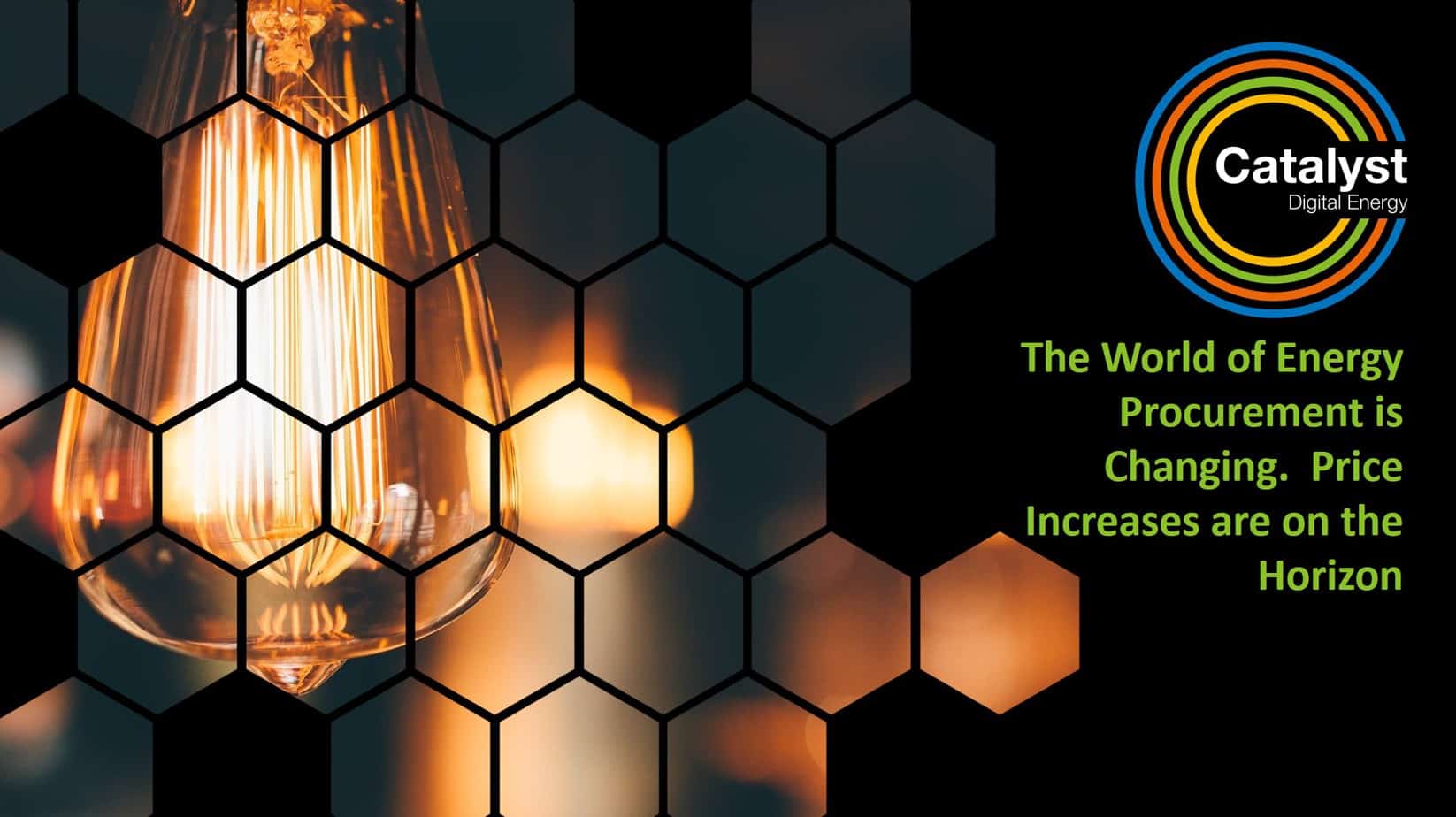The world of energy procurement is changing. Price increases are on the horizonThere are many benefits that a flexible contract can provide in the current market conditions and flex should certainly be a consideration if your energy consumption has been impacted by Covid-19 this year.

Its Time to Make a Change - Energy Procurement
Catalyst Commercial Services’ CEO Chris Hurcombe believes it’s time businesses consider flexible over fixed energy procurement contracts as a cost benefit for businesses.
There has always been a debate between flexible energy contracts or fixed energy procurement contracts
Many businesses rely heavily on their supplier or energy consultant to advise on the best contract; they hope that the supplier or consultant finds the best price for their business and secures this price for an agreed period of time.
Some also seek renewable energy sources – green energy – and again, look to source and secure in the best price for a period of time.
For these businesses fixed procurement contracts were the preferred choice as they offered a good price (at the time of purchase) and fixed the price for a number of years which was forecasted based on historic consumption patterns.
This was the easiest option and the reason fixed contracts prevailed in the most part.
But then Covid-19 rocked the world and turned everything on its head. No more so than the world of energy procurement.
Move over fixed and say hello to flex
There are many benefits that a flexible contract can provide in the current market conditions and flex should certainly be a consideration if your energy consumption has been impacted by Covid-19 this year.
As commercial properties closed and staff transitioned to home office working a business’ energy consumption dramatically changed as thousands of commercial properties were, in essence, switched off.
And covid-19 is one reason why price increases are on the horizon and a move to flexible contracts may be more preferable moving forward.
The complicated and extremely volatile commodity market can change every half hour in a very simple way. As these are regulated revenue charges and with a significant drop in consumption because of Covid-19, 2021 will likely see some significant increases in these costs to cover 2020’s shortfall.
When combined with the targeted charging review from April 2022 we can expect some significant cost impacts over the next few years.
These are impacting the non-commodity costs – also known as third party costs – and they have grown significantly over the past few years and now account for the majority share of a fully delivered energy contract – at approximately 65% of a fully delivered energy bill.
With these constant price updates it is becoming more and more challenging for suppliers to estimate these third party costs and as such, guaranteeing these prices for a fixed procurement contract is a risky business for suppliers.
As a result suppliers will add a risk premium to cover any potential shortfall in their estimates, they may also – often included in the terms and conditions of the contract – execute a clause to allow suppliers to pass on any additional costs in the future if they underestimate these charges, so it’s very important that you always check the small print.
This is where flex is becoming more cost advantageous for some businesses
With flexible contracts there is no risk premium and you will have complete transparency over the component parts that make up your final energy bill.
The framework of a flexible contract allows the separation of third party costs from the cost of purchasing the energy directly at wholesale prices. It offers greater freedom and control than fixed procurement, as it allows an organisation to spread the risk of energy purchasing decisions over a period of time and take advantage of wholesale price movements.
The Covid-19 pandemic is forcing many businesses of all sizes to consider how they procure energy, with many realising they need greater flexibility to adapt to market changes.
Flex contracts help provide this level of flexibility because when setting up a flexible procurement framework, a three-year energy strategy will often be devised. This will take a long-term view of the energy market and allow your organisation to do the same, assisting with long term energy budgeting and forecasting.
Even when commercial premises open up again, the way in which they are used and therefore the volume of energy they consume will differ greatly from historic patterns.
With a flex contract you can better manage your volume requirements and adapt quickly to market conditions. With this level of freedom, you can also unlock hidden costs through better energy management with a flexible product which can ‘pass through’ non-energy charges.
About Catalyst
Catalyst Digital Energy is an award-winning energy consultancy with a focus on digital energy services, total energy contract life-cycle management and energy management services. It is revolutionising how businesses manage energy with its unique Energy Spend Management Platform, which is powered by Robotic Process Automation (RPA) EaaSi®.
Catalyst is digitising all aspects of energy, including billing, data, consumption, spend, payments, procurement and emissions reporting. When combined with its fully funded renewable energy solutions, Catalyst offers a unique and powerful approach to managing energy.
